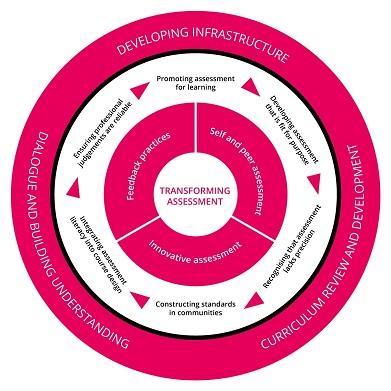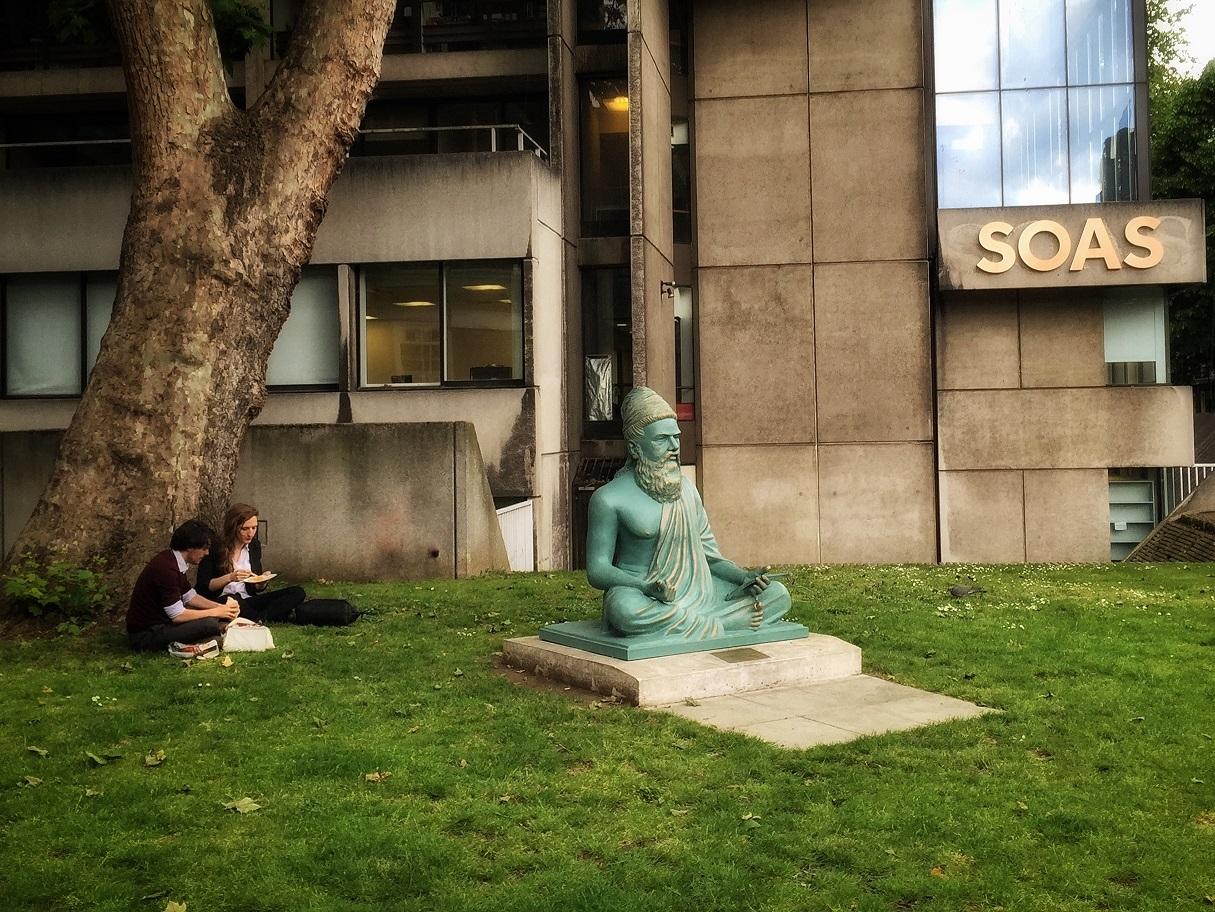Addressing the attainment gap through inclusive assessment
In 2017, following an academic restructure, SOAS University of London (SOAS) sought to develop and embed a coherent, reflexive and robust approach to inclusive assessment across the institution. It was anticipated that such an approach would help SOAS to reduce the attainment gap between different student groups. This is a national issue impacting students at all HE institutions as highlighted in Advance HE’s students’ statistical report 2018. Advance HE were approached by SOAS to support them in developing and introducing this new institution-wide approach to inclusive assessment. This highly collaborative change programme has resulted in SOAS adopting Advance HE’s inclusive assessment labs across the institution as an element of their validation and re-validation process.
Background
SOAS specialises in the study of Asia, Africa and the Near and Middle East and is justifiably proud of its curriculum which encourages interdisciplinarity and deliberately takes a non-Eurocentric approach. With students from more than 130 countries, it has an incredibly diverse and vibrant student community and is one of the UK’s most international universities. A significant academic restructure, with SOAS moving from three faculties to eleven schools, gave SOAS the ideal opportunity to conduct a strategic review of its curriculum and in particular its assessment policy and practice across the entire institution. Assessment plays a central role in higher education. It:
- Supports students’ learning;
- Tells them what is valued and what is required to succeed in their studies;
- Is a major factor in the exclusion and attrition of students with attainment gaps particularly notable among students from disadvantaged backgrounds;
- Is the means by which we assure and express academic standards; and
- Has a vital impact on staff time, university reputations, league tables and, most importantly, students’ future lives.
The approach
To actively support and encourage a sustainable shift towards a more holistic culture of inclusive assessment and feedback, a four-stage institutional change programme was undertaken. This programme brought Advance HE’s ‘Transforming Assessment’ framework together with its work on embedding equality and diversity in the curriculum.
Advance HE’s Transforming Assessment framework

Stage 1: Establishing the programme
A working group of senior academics, students and professional staff was established. This was a key stage in ensuring that SOAS was able to take ownership of this change programme for inclusive assessment. The working group aimed to frame the programme of work to ensure collective understanding of the programme contexts and related activities as well as collective agreement on the programme purpose. It also played a key role in shaping the programme and its timings.
Stage 2: Developing an institutional vision
Advance HE hosted workshops and conducted primary research on inclusive assessment to co-develop a vision, implementation principles and underpinning values specific to SOAS.
- To achieve this, a visioning workshop took place with a range of academic staff, students and professional services staff.
- This institutional vision was then tested and refined with more staff and more students in the form of a testing workshop.
- The refined vision was then brought back to the working group, with the aim of reviewing and confirming a final vision statement with principles and values.
Ensuring that the vision of inclusive assessment was bespoke to the institution was a key step in this process. We conducted a lot of overarching research and practice work on inclusive assessment, which we then took to make it specific to SOAS. It is all about making Advance HE’s frameworks work for individual institutions.”
– Pauline Hanesworth, Senior Adviser, Knowledge, Insights, Innovation and Delivery, Advance HE
Stage 3: Empowering the institutional change
The next stage involved developing the internal capacity at SOAS to lead and implement the vision. This comprised three activities:
Vision principles workshops: The workshops provided the opportunity to explore key issues and practicalities in implementing the principles of SOAS’ inclusive assessment vision. From this, Advance HE was able to develop guidelines with suggested approaches for the implementation.
Learning and teaching coordinators (LTC) forum: As part of their role, LTCs are required to lead on a variety of learning and teaching elements including the implementation of inclusive assessment. The forum is where these coordinators started to build their capacity to fulfil the expectations of their roles.
Inclusive assessment labs: Through four two-day assessment labs, staff explored issues and perspectives of inclusive assessment in relation to the SOAS vision and principles. In particular, programme teams were asked to look at their current assessment practices and assessment intensity and map them. Teams then reviewed this through the lens of good assessment – or in this case, good inclusive assessment – and redesigned it. Already, curriculum improvements are being made, with modules fitting together in a more coordinated way.
For me, a highlight of the process was the inclusive assessment labs. Reviewing our programme at a concrete level with colleagues in my department enabled me to understand how these different processes could come together and be utilised for the benefit of our department, the programme and students.”
- Satoshi Miyamura, Senior Lecturer and Learning & Teaching coordinator at the SOAS Department of Economics
Stage 4: Reviewing the programme
In this final phase, programme participants were brought back together to reflect on progress to date and on how to consolidate the initial successes.

Next steps
Pleased with the work conducted over the past year, SOAS has now commissioned Advance HE to conduct a second year-long programme. The inclusive assessment lab is now a part of the validation and re-validation process at the institution and the next year will focus on training the LTCs we worked with last year along with Associate Directors of Learning and Teaching. The overall aim is to enable these groups to deliver inclusive assessment labs independently.
Assessment and feedback is such a critical element of student success and at SOAS we are determined to make it inclusive and fair. Advance HE’s support in helping us to develop and embed an inclusive approach to assessment is proving invaluable. In particular, the assessment labs provide us with an accessible mechanism for implementing positive and significant change across the institution and over time will help us greatly in improving the assessment and feedback we provide to students and in our efforts to reduce attainment gaps.
– Deborah Johnston, Pro-Director for Learning & Teaching at SOAS
To find out more about the inclusive assessment change programme, our inclusive assessment labs and what we can do to support you in narrowing the attainment gap, contact businessdevelopment@advance-he.ac.uk